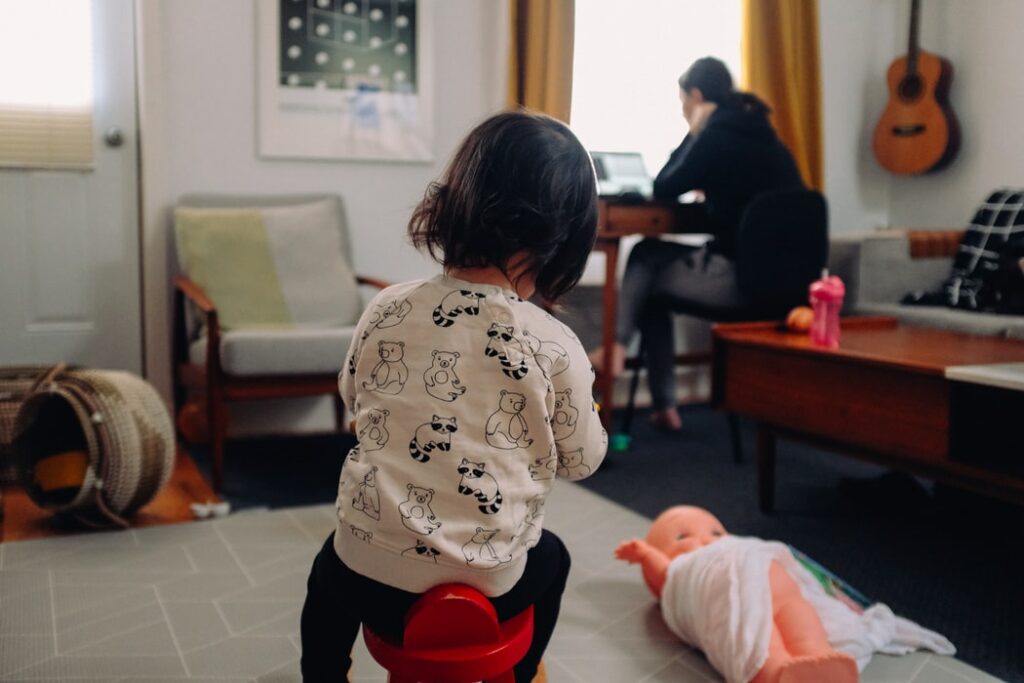The impact of the COVID-19 crisis has deepened the traditional gender divides across many areas, according to findings from a recent research report by Eurofound, the Dublin-based EU Agency for the improvement of living and working conditions.
The report, COVID-19 pandemic and the gender divide at work and home, deals with the impact of the crisis on gender equality in the labour market, working conditions, work-life conflict and overall working time.
In particular, the report highlights the impact on women with young children working from home and points to the critical role of care services in supporting women’s labour market participation, financial security and overall well-being.
Paid and unpaid work are both heavily gender-segregated, reflecting deep-rooted social norms about gender roles of women as primary caregivers. These divides translate into gaps in the labour market, pay and well-being, including in poverty and work–life conflict. The COVID-19 crisis has raised concerns about its potential to widen many gaps between women and men in the workplace and at home.
On the positive side, the impact of the COVID-19 pandemic on the employment rate, unemployment rate and hours worked has been remarkably gender-neutral at the aggregate EU level. However, employment losses have been concentrated among the lowest-paid women, while men’s job losses have been more evenly distributed.
Women are overrepresented in sectors such as hospitality which were closed down for long periods and experienced job losses; they are also overrepresented in teleworkable and essential sectors which had the fewest job losses.
The pre-pandemic trend of women carrying out around twice the number of unpaid working hours of men continued, while the crisis increased the need for households themselves to provide services such as childcare and cleaning. The common perception is that unpaid work at home increased for both men and women during the lockdowns and that their total shares remained about the same.
However, according to the report, women’s total weekly working time (when paid and unpaid work are combined) exceeds that of men by 7 hours in the EU among employed individuals. This figure rises to almost 19 hours when those who are full-time employed with children are compared.
The new findings reveal how the switch to teleworking or flexible working arrangements are more likely to be adopted by women, risking a worsening of gender inequalities where increases in unpaid workload and lower visibility in the workplace can lead to unintended consequences on career progression, pay and pensions.
The COVID-19 crisis increased the need for unpaid work, accentuating gender roles: women’s share of caring, cooking and cleaning increased, while men’s share of gardening, do-it-yourself work (DIY) repairing the home and transporting family members also rose. In dual-earner families, the father’s share of childcare only increased if the mother worked outside the home and the father did not.
One explanation for the widening gap in unpaid work can be that the type of work men is doing are less time-sensitive and takes less time. In families where the couple have agreed on sharing household duties in a more or less equal way – buying groceries, cooking, doing the dishes, cleaning, and the laundry – the gap in unpaid work probably was reduced but this does not emerge from the study.
“The COVID-19 crisis has highlighted gender divides at work and home,” commented Eurofound Deputy Director Maria Jepsen.
“Post-pandemic we have an opportunity to bring about real change by addressing gender norms, behaviours, and policy innovation. It is crucial for policymakers, including social partners, to prioritise gender issues while continuing to closely monitor and evaluate progress.”
While teleworking or remote work is here to stay, post-COVID arrangements will probably be flexible, combining both working from home and at the office offering connection with fellow workers and mentorship. Teleworking enables men to share child care and parenting without having to take parental leave and might therefore have a positive impact on gender equality in this regard.
M. Apelblat
The Brussels Times


